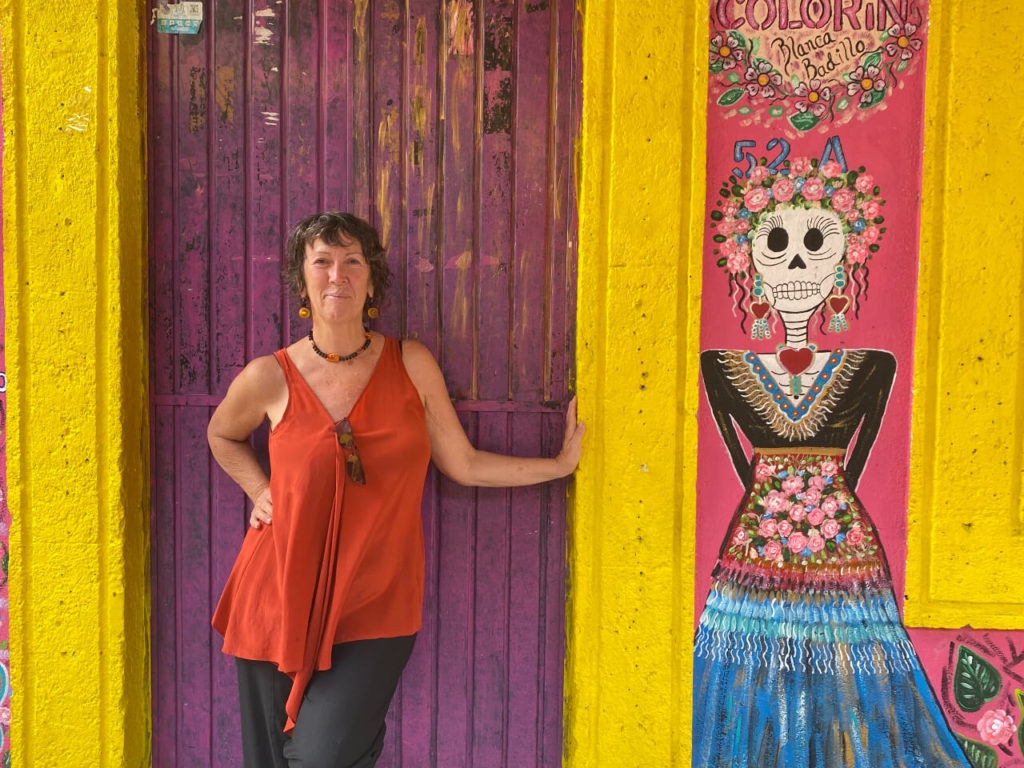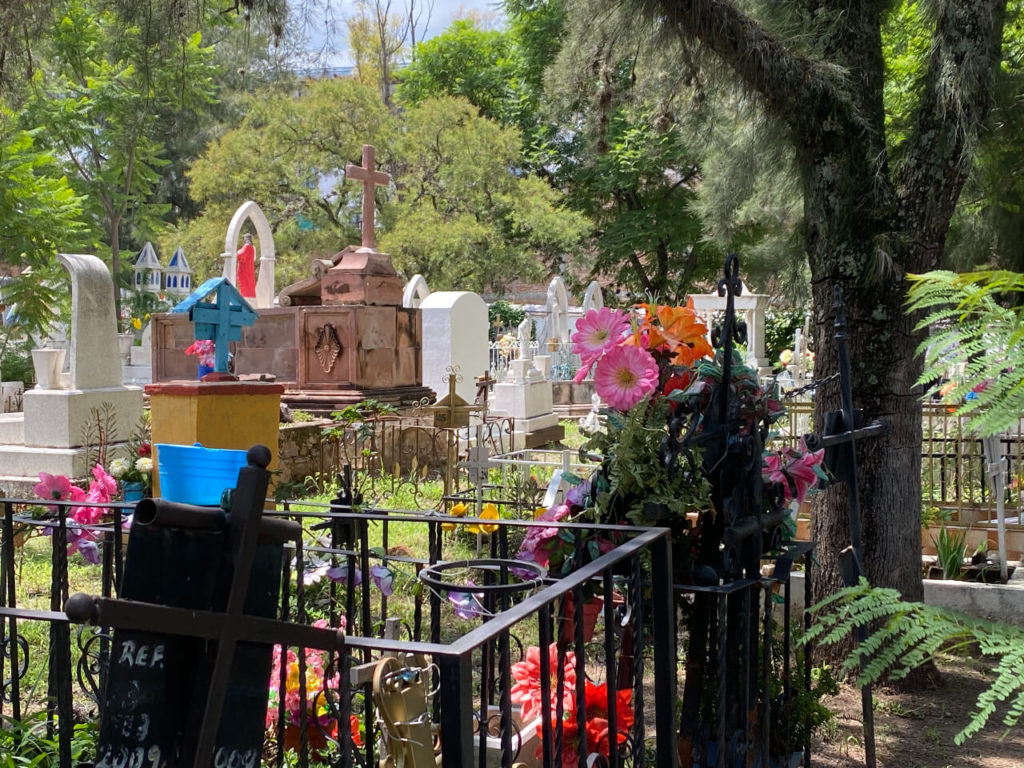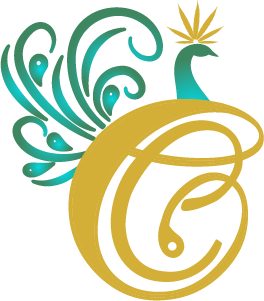
A guest post by my friend and colleague, Bobbi Bryant:
On a warm summer day in August, I intentionally wandered into the Cemetery of Our Lady Guadalupe in San Miguel de Allende, Mexico. I spent the next three hours slowly making my way through the cemetery in wonder at all the vibrant colors that adorned so many of the grave sites, along with the flowers, sculptures, photos, epitaphs, and messages to the beloved dead.
As I was sitting under the shade of a jacaranda tree, I closed my eyes and imagined, as much as I could, all those whose bones are buried in the cemetery, who at one time were walking, talking, loving, and living in San Miguel de Allende or the surrounding area in Mexico. Just like me, they were on the earth for a period of time, and just like I will one day, they crossed over into the great mystery when they died. I began to weep and once again, I felt so deeply the impermanence of our lives and a sense of gratitude for my time here and whatever time I have left.
In Mexico, family is of great importance. The tendency is to take care of their loved ones who are aging, ill, and dying, in the family home. It’s normal. Bearing the difficulties involved in dying is normal. Caring for loved ones is woven into the daily fabric of life. I have so much appreciation for how death is just a normal part of life here. It is not separate and can be seen everywhere: expressed in the art, neighborhood murals, the catholic rituals played out in regular community festivals, as well as the cultural and artistic elements of the Day of the Dead festivities that are present in everyday life.

The end-of-life doula movement (aka death doulas, death midwives, etc.) strives to return to a time when we (those who are a part of a culture which has forgotten how to care for our own) accompany each other to the threshold of death. From diagnosis through various stages of decline of the body, we provide non-medical education and support in the practical, physical, spiritual, and emotional realms of aging, sickness, and dying. Some doulas provide after-death support as well.
Doulas listen deeply and provide resources as well as hands-on comfort care. We offer support to the dying person in leaving a meaningful legacy of the heart for the family. We also cradle the family of the dying person, knowing they likely may be experiencing some level of grief and may need support in understanding how they can provide care for their loved one. We provide bedside companionship during active dying and support in understanding what the various stages of dying look like. This is a tender time for everyone and so doulas walk side-by-side to assist in whatever non-medical way they can to provide compassionate assistance.
The end-of-life doula movement calls for open discussions about dying, quality of life, love, joy, vulnerability, and this whole human experience that ultimately ends in death. We provide education in understanding options for where the body can go after death and the ways in which to honor that life, based on what is important for family. Doulas know that we don’t have to do this dying thing alone and that the discussions with family, friends, and community are necessary so that we all may move towards having the most sane and best quality of life and death “as possible” (given that most things in life are out of our control).
End-of-life doulas are excellent at supporting clients in making plans based on values and goals as well as what is culturally relevant. We are great at networking and finding needed resources.
End-of-life doulas are called on to investigate their own inner landscape to better understand how death, loss, and grief have affected their own lives, so we empathetically attune to those we are serving and so we may touch deeply into the experience of what it means to walk each other home.
